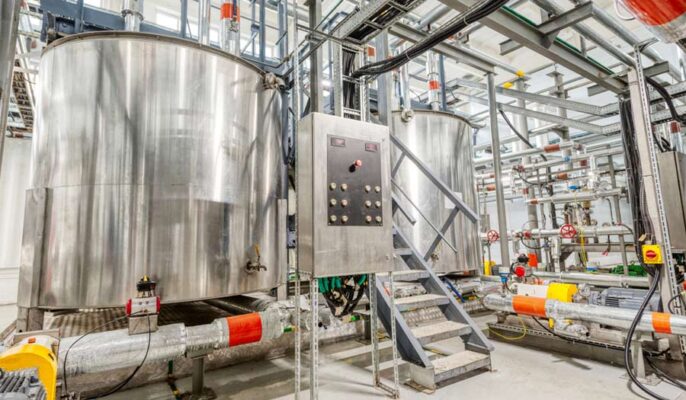As more craft brewers emerge and expand their workforce, beer industry employers are realizing their unique responsibilities to protect their employees. The Occupational Safety and Health Administration requires businesses to adhere to certain health and safety standards and penalizes craft breweries for various violations. As a brewer, you have a responsibility to your employees and customers to maintain the highest safety standards.
Confined space entry requiring permit
Brewing requires personnel to clean and repair fermenteurs, silos, kettles and mash wheels. These spaces are usually small enough to be considered a confined space under OSHA regulations. Companies should inspect and test their work spaces to determine if any spaces qualify as Permit Required Confined Spaces (PRCS). If PRCS is discovered, employers must warn employees.

Correct approach
- Companies should inspect and assess their workplaces to determine if any spaces are Permit Required Confined Spaces (PRCS).
- Employers must identify potential hazards of PRCS by issuing warnings.
- If business operations must employees to enter a PRCS (such as certain areas of a brewery), the company must maintain a written space plan that requires permission. Elements of the plan should include, among other things, monitoring atmospheric conditions in space and developing emergency rescue plans.
- Employers must provide employees with appropriate training to enter PRCS.
- Finally, employees should get an entry permit signed by the Immigration Supervisor before entering and/or working at PRCS.
General liability clauses
Brewers often transport heavy kegs, bags of grain and other raw materials. Because OSHA has not yet established specific ergonomics standards, breweries can be cited under the OSHA General Duty Clause, which requires employers to provide a workplace “free from recognized hazards that cause, or are likely to cause, death or serious injury.”
How to avoid this violation
- Training – Employees need to be taught and reminded of correct lifting techniques.
- Invest in and provide appropriate tools and equipment (such as forklifts) to lift heavy objects, and ensure employees are trained in their use.
- Consider creating a work schedule so that many employees can share promotion responsibilities. For example, if bags of grain must be transported early in the morning, schedule many workers in shifts.
High-hazardous chemical process safety management
To help ensure a safe and healthy workplace, OSHA publishes the Process Safety Management (PSM) Standard for High-Hazard Chemicals (29 CFR 1910.119), which contains hazard management requirements related to processes that use high-hazard chemicals. Not only do businesses need to follow PSM standards, they also need to maintain appropriate documentation about the use and handling of any hazardous chemicals.
The complex chemicals involved in the brewing process must many hazardous chemicals that fall under Process Safety Management (PSM) standards for hazardous chemicals. These chemicals can be carbon dioxide, oxygen, and ammonia to oxygenate the alcohol and keep it refrigerated . Additionally, brewers may use a variety of alkaline chemicals to clean equipment.
Control of hazardous energy
Lockout, tagout (LOTO) violations are one of the most common citations issued by OSHA each year. Employers must follow specific LOTO practices and procedures to protect employees from the unintended start-up of machinery and equipment.
How to avoid this violation
- Create a LOTO plan to protect employees from all hazardous energy sources including electrical, hydraulic, gravity, and heat.
- Develop written procedures covering the control of hazardous energy sources.
Eye and face protection
Because craft breweries are smaller, it’s easy to overlook proper personal protective equipment (PPE), especially face and eye protection. But, OSHA often accuses breweries of PPE violations when workers handle boiling water or toxic chemicals without the proper equipment.
Under OSHA regulations, businesses must provide appropriate personal protective equipment to protect their workers. For breweries, this may include coveralls, gloves, goggles or a full face mask.

Follow regulations
Don’t let oversight take away from the time and energy you’d rather spend growing your brewery. Make sure you put safety at the top of your to-do list.
Start by preparing and documenting procedures that follow current laws and regulations. Schedule time to train employees on procedures and always keep safety records up to date. Revisit your plan and be prepared to update procedures before new laws take effect.
Stay compliant
Please remember to stay informed and follow other relevant regulations:
- Alcohol Regulations: Any business that produces or sells ag
- lcohol must follow national and state laws and any local rules and regulations.
- Good Manufacturing Practices: Establish purchasing and production standards and quality management practices in compliance with federal, state and county regulations and standards.
- Environmental Impact: Plan ahead to manage wastewater, waste disposal and air emissions according to your region’s regulations to stay compliant.




